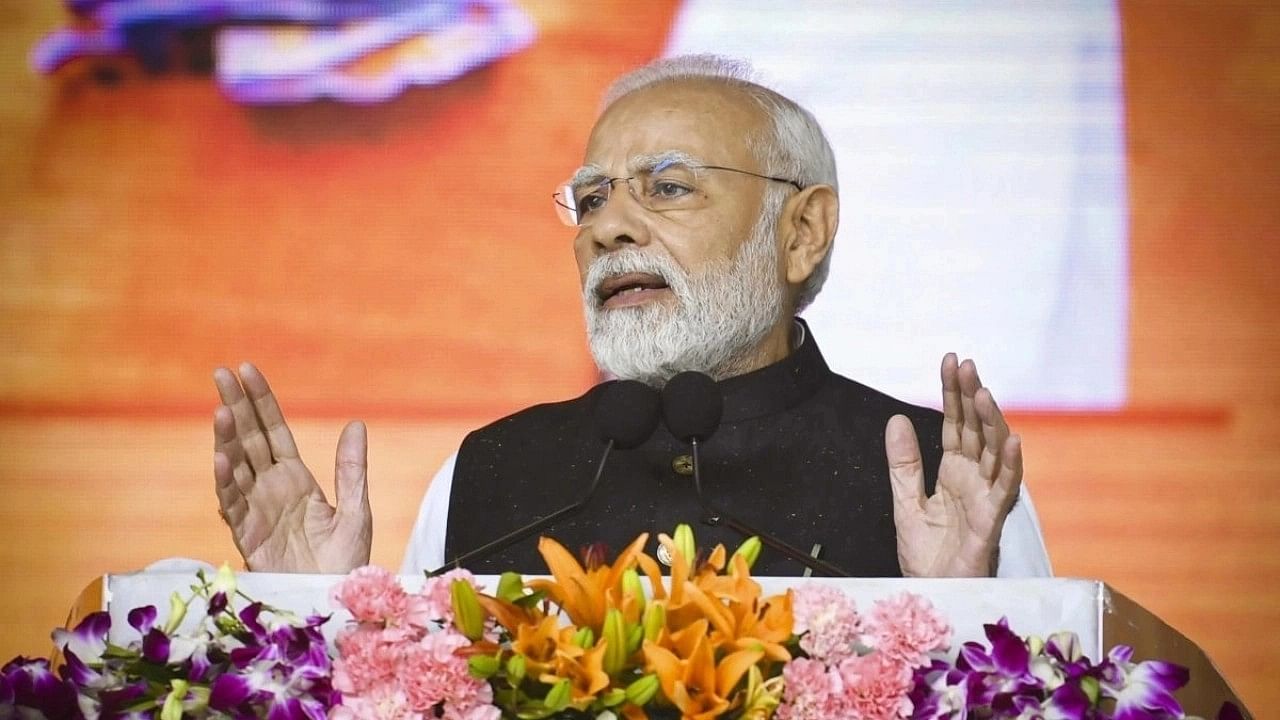
Prime Minister Narendra Modi.
Credit: PTI Photo
By Chiranjivi Chakraborty and Ashutosh Joshi
A period of relative calm in India’s $4.6 trillion (Rs 3,84,09,172 crore) stock market has been shaken by speculation that Prime Minister Narendra Modi’s party may win fewer seats than initially expected in the ongoing national elections, which could affect its ability to carry out policy reforms.
The India VIX Index— a measure that uses equity option prices to gauge expected market swings over the next 30 days— rose for a ninth straight day Tuesday, capping its longest run since March 2020. The so-called fear gauge, which hit a record low just two weeks ago, marked its highest close since early 2023.
Modi is still widely expected to win a third five-year term in the marathon election that began April 19 and will run through June 1, with the leader having predicted that his Bharatiya Janata Party and its allies will win more than 400 of the 543 seats up for grabs in the lower house of parliament.
However, attention has recently shifted to a dip in voter turnout during the first two phases of voting and media reports have fanned some speculation among equity traders of a less emphatic performance for the ruling coalition. In the last election in 2019, the BJP expanded its majority to 303 seats, and the alliance it leads currently commands 353 seats.
“There is a chatter that BJP may win 290-300 seats and if that happens, markets will surely see a blip,” said Mukesh Jain, managing director of Jaipur-based Maverick Share Brokers, which has been in the markets for over two decades.
India’s benchmark NSE Nifty 50 Index slid 0.6 per cent in a third day of losses, its lowest close since April 19. That’s even as a broader gauge of Asian stocks advanced for a fourth day. Turnover in equity derivatives has also slumped to its lowest since December.
The subdued sentiment also hit shares of Gautam Adani’s conglomerate, which is perceived to be close to Modi. The combined market value of the group’s 10 companies has fallen by more than 7 per cent from its recent peak in early April, versus the 1 per cent drop in broader market. The group’s flagship firm has erased its gains for the year.
Last week, the Election Commission of India said it was disappointed with the turnout so far and is taking measures to boost participation in the remaining phases of polling. On Tuesday, voting kicked off in Modi’s home state of Gujarat in what is the third phase of the election. The winner will be declared on June 4. A party needs 272 seats in parliament to have a majority.
“There is a creeping likelihood that the deviation between reality and expectations in terms of seats that the BJP-led alliance can win could be high,” said Dhananjay Sinha, co-head of equities at Systematix Group. “This is leading to quite a bit of uncertainty in the market. It’s very likely that the recent jump in VIX is reflecting this concern in the market.”
To be sure, a victory for Modi’s party still remains the most-anticipated outcome for traders. And based on India’s past political history, there’s no link between lower voter turnout and support for the incumbent party.
“Frankly, I don’t see any possibility of this,” Jain of Maverick Share Brokers said when asked about the changes of the BJP-led alliance failing to win the election. “I haven’t really thought of this scenario.”
Further, the recent weakness in Indian stocks is coming after a period of extended outperformance versus regional peers. Strategists at global banks from Goldman Sachs Group Inc. and JPMorgan Chase & Co. have said that Indian equities are set to attract more foreign inflows post the general elections on bets that Modi, who has promised continued spending on infrastructure, will return to power.